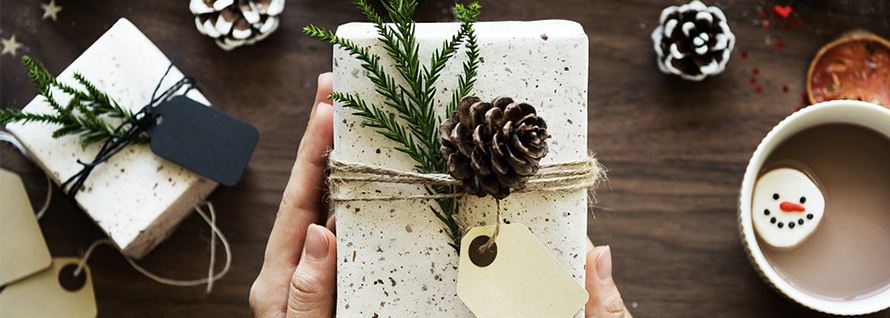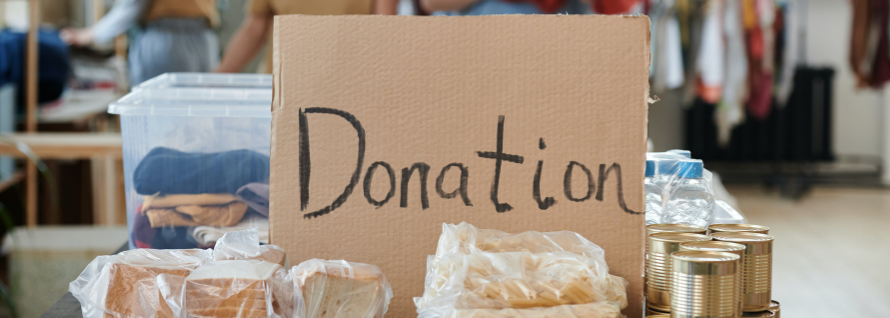Christmas is fast approaching, which means it’s time to put up the tree, hook up the fairy lights, start planning a festive feast and finding meaningful gifts for those closest to you. It’s a magical time of year – but, it can also be a wasteful time, too. From wrapping paper to food and power, Christmas can take its toll on the environment.
The good news is that there are a few simple ways you can reduce wastage and have a more sustainable Christmas.
Here, we’ve collected some simple tips for an eco-friendly Christmas while still getting into the holiday spirit.
#1. Opt for LED lights for decorating
If you love to see the twinkle of Christmas lights on your tree each year, we recommend opting for eco-friendly LED lights over traditional incandescent lights.
LED lights bring power costs right down, meaning you can decorate more, pay less, and keep an eye on your carbon footprint.
For some perspective, 50 incandescent string lights use 0.3 kilowatts of light, and 50 LED string lights use just 0.004 kilowatts of light.
To minimise costs and power usage, turn off your lights when not in use and don’t leave them running all night long (Santa will just need to find his way to the Christmas tree in the dark).
#2. Use recycled wrapping paper (and recycle it again)
Test your wrapping skills this Christmas and look for 100% recycled and recyclable wrapping paper.

A lot of traditional wrapping paper is made with plastic paper coatings, glitter, trace amounts of metal (foil) and petroleum-based inks, making it very hard to recycle. Plus, most wrapping paper is made from non-recycled or “virgin” paper, which is incredibly wasteful.
Hundreds of small businesses produce recycled wrapping paper. Woodies, for example, is a Tasmanian business that creates recyclable wrapping paper and plants a tree for every three rolls of paper sold.
You could also use simple brown wrapping paper that can be popped right into the recycling bin.
#3. Skip the wrapping and gift an experience
Want to eliminate waste altogether? Skip the wrapping paper, boxes, and bags, and give the gift of an experience. Think tickets to concerts and festivals, a homemade coupon book with the promise of a homemade meal, or a trip to an exclusive, fine-dining restaurant for two.
Alternatively, you can let your loved ones choose their own adventures with a gift card from experience providers like Red Balloon or Prezee.
#4. Make a difference and donate
Gift shopping for someone with a big heart?
Consider donating on their behalf to a cause that’s close to that big heart of theirs. Pick their brain in the months leading up to Christmas and find where your money would be best spent, like homeless shelters, children’s charities, conservation groups and animal rights groups.
Make a generous donation in their name and share the details in their Christmas card. They’ll be happy to know that you’ve invested in a better future — together.

#5. Avoid using plastic disposable cutlery and dinnerware
If you’re hosting the annual Christmas breakfast, lunch, or dinner, it might be tempting to use disposable cutlery and dinnerware to save time on cleaning up.
Unfortunately, plastic cutlery and dinnerware can’t be recycled easily, even if made from recyclable plastic — most of the time, they end up in landfills, our waterways, and oceans, ultimately harming wildlife and the environment.
For a more sustainable Christmas this year, break out the usual dinnerware and cutlery, opt for cloth napkins, and take the time to do the washing up (even if it’s the following morning).
You’ll feel much better for eliminating the waste. If you are looking for something special, pop into your local Vinnies or Salvos - there is often beautiful dinnerware at a reasonable price.
#6. Serve seasonal, local, and organic food
You can even make your Christmas meals more sustainable by choosing seasonal, locally produced ingredients – this can help reduce the resources required to grow foods out of season or have non-seasonal fruits and vegetables imported from other countries.
Consider doing the annual Christmas shop at the local farmer’s markets and stock up on seasonal summer produce.
Seasonal fruits and vegetables include:
|
Fruits |
Vegetables |
|
|
Start the New Year with Gateway Bank
Making real and positive environmental changes can feel overwhelming – but starting out small and implementing any of these sustainability tips over the Christmas period is a start.
If you’re looking to adopt a more eco-conscious lifestyle and feel as passionate about doing the right thing for our planet like we do, consider making the change to Gateway.
At Gateway, we don’t believe banking should cost the earth – that’s why we’re committed to providing a range of environmentally conscious and responsible banking products for our members and the broader community.
From our plant-based Eco Debit Card to our Green Home Loans, we reward members who want to adopt a more sustainable lifestyle and energy efficient environment.
Plus, you can rest assured knowing that we’ve established ethical banking policies, and do not fund industries that harm the environment, like fossil fuel, deforestation, tobacco, or live export industries.
Open an account with us today or speak to our member services team to find out more – because banking shouldn’t cost the earth.





